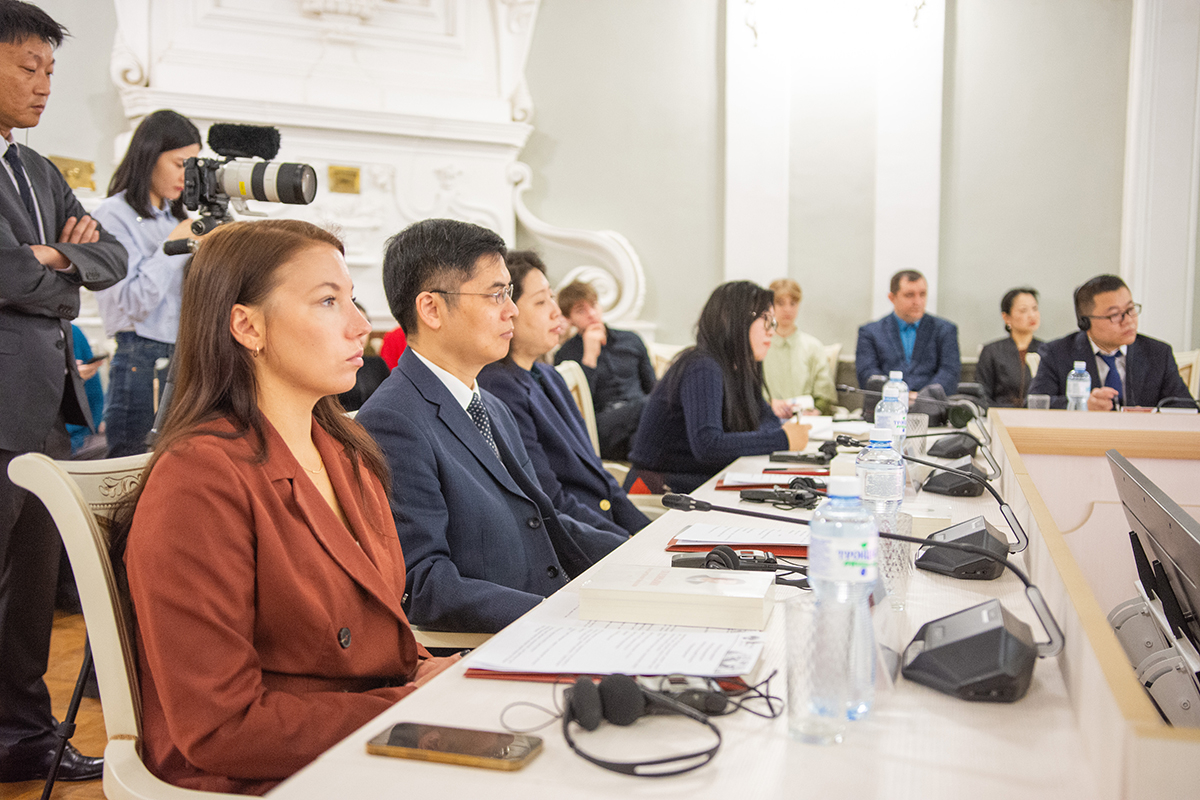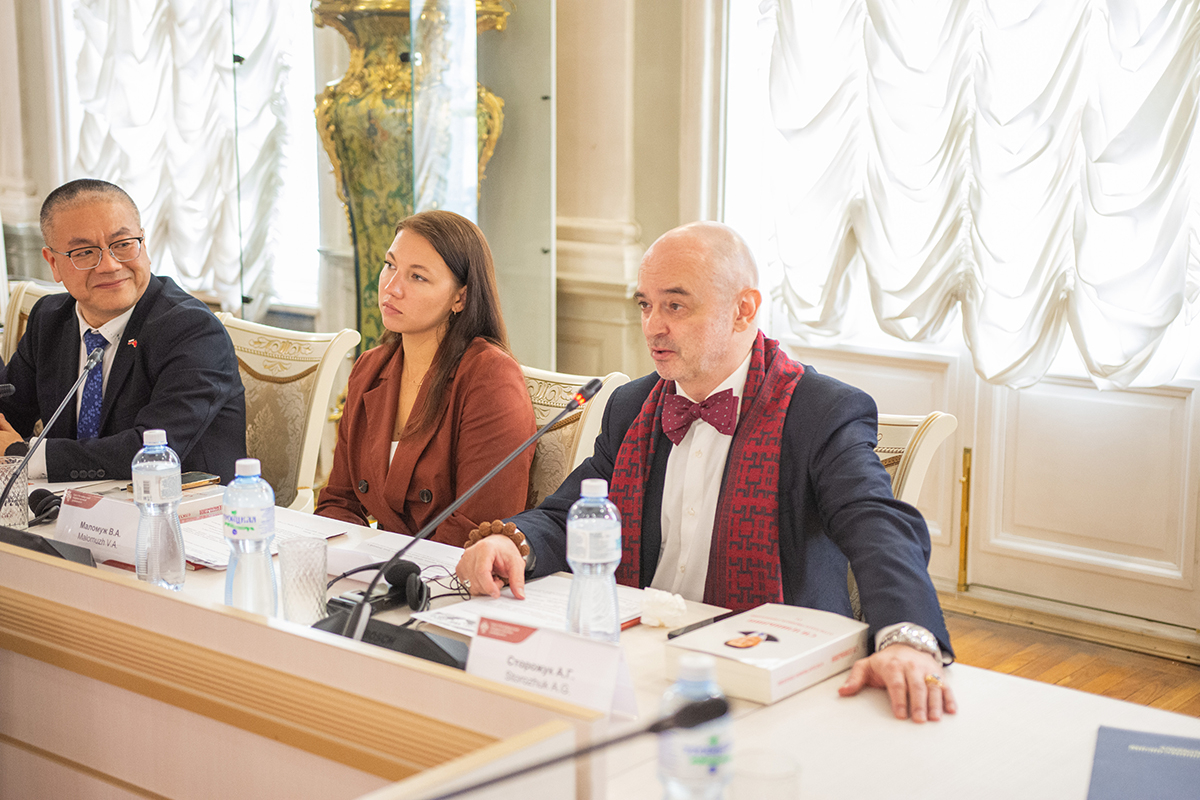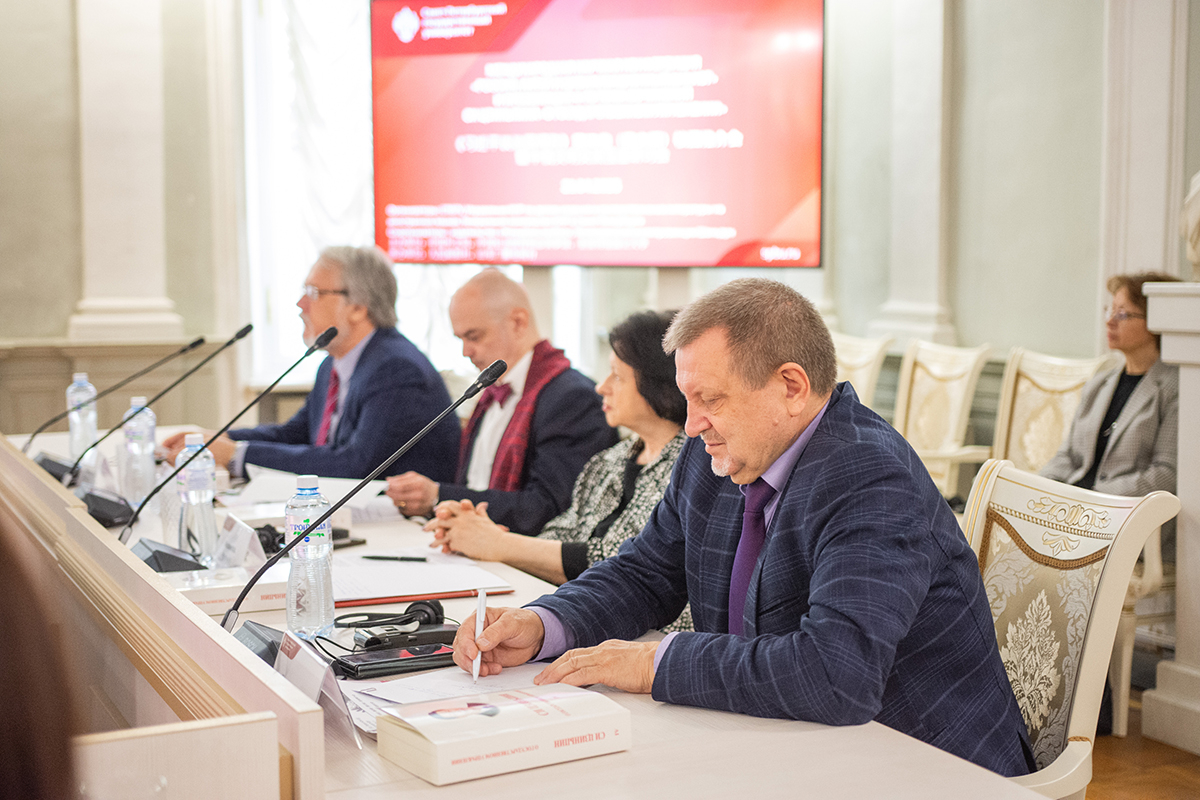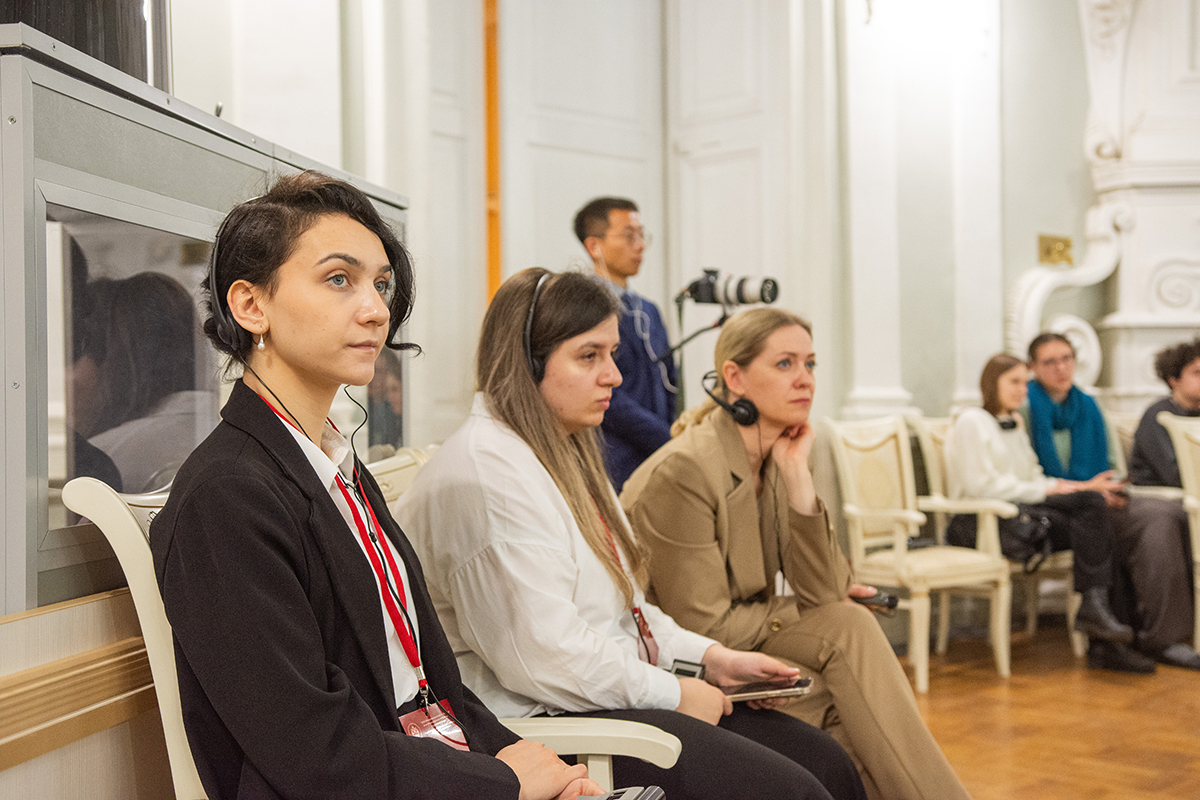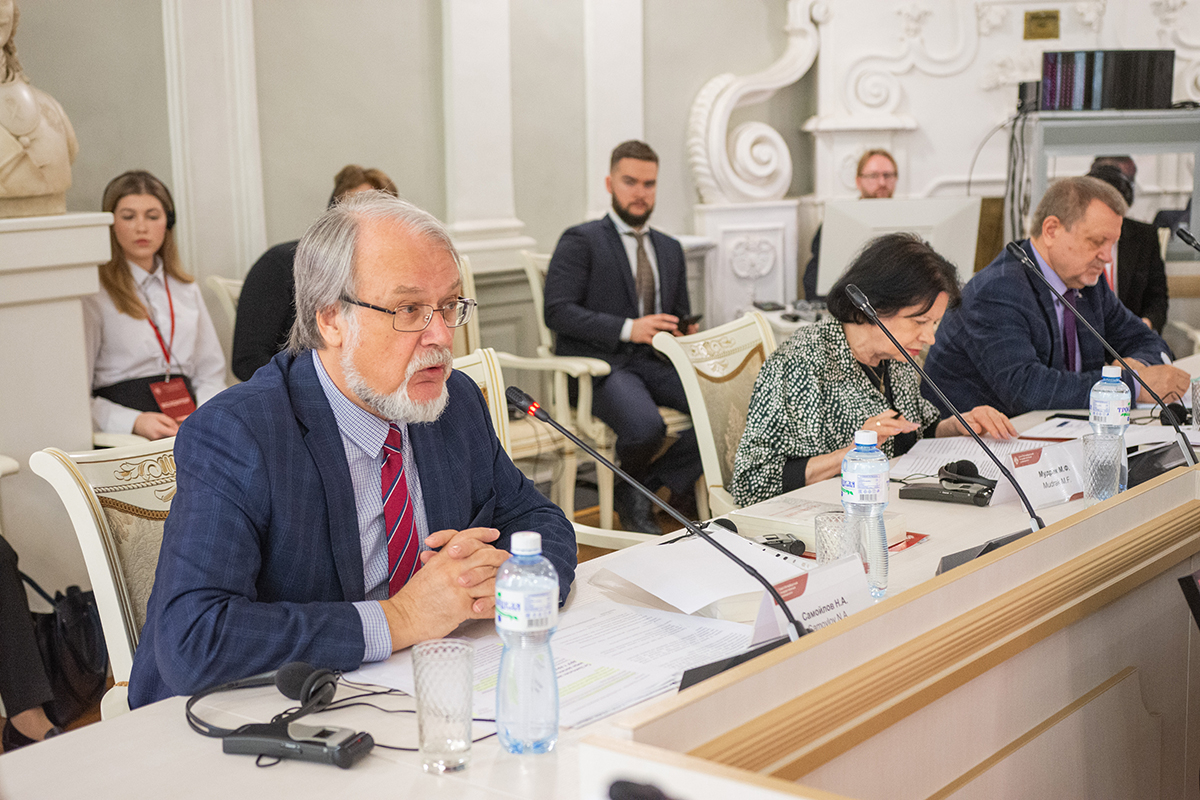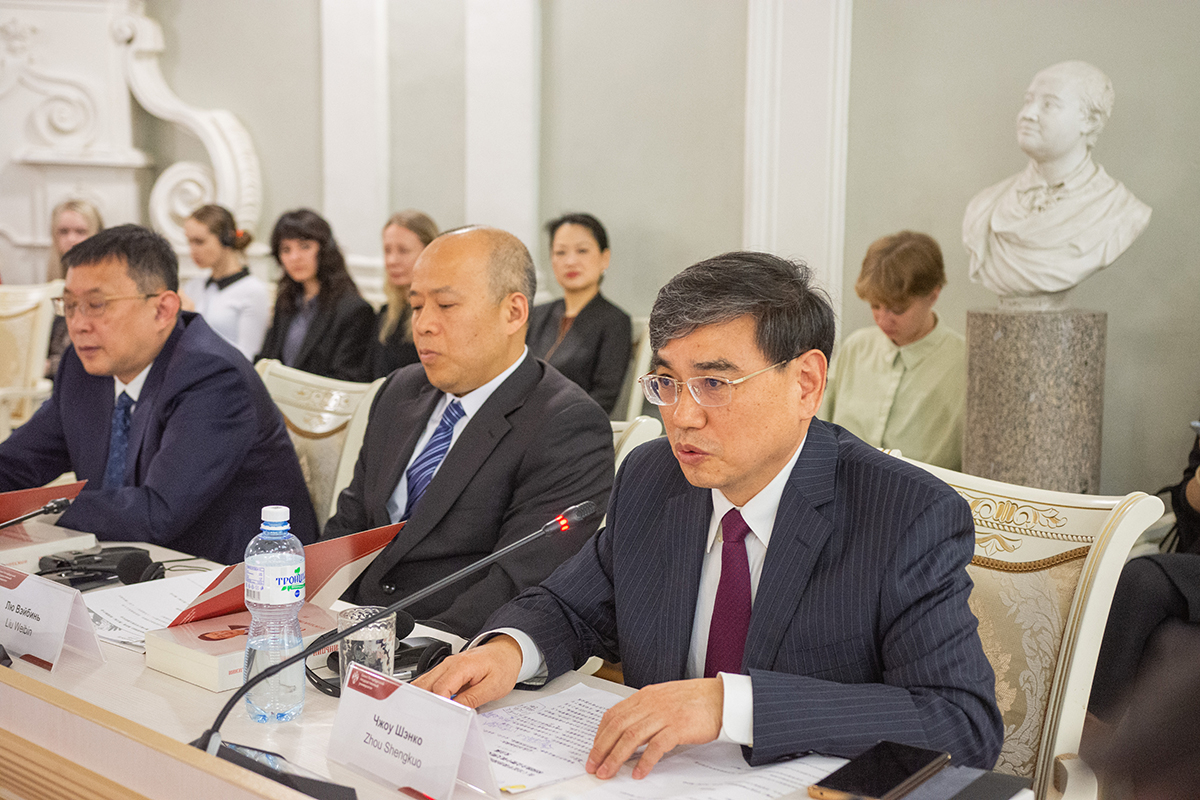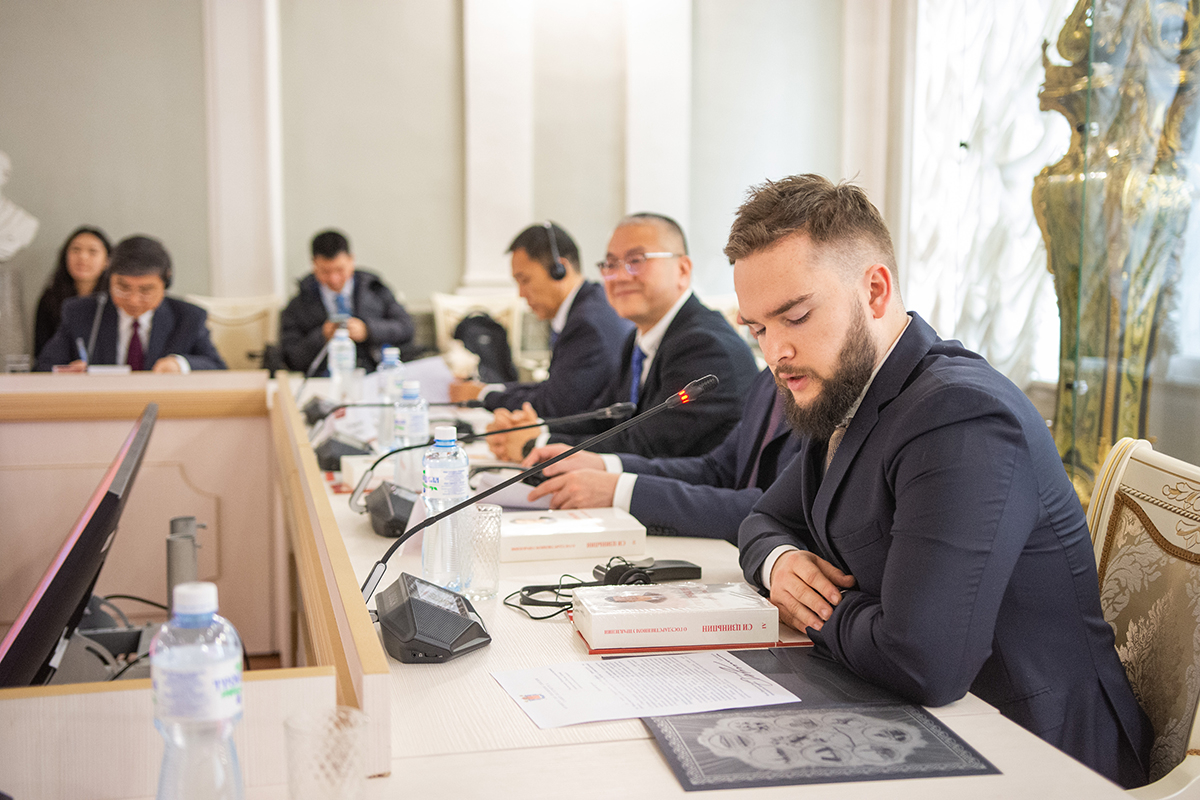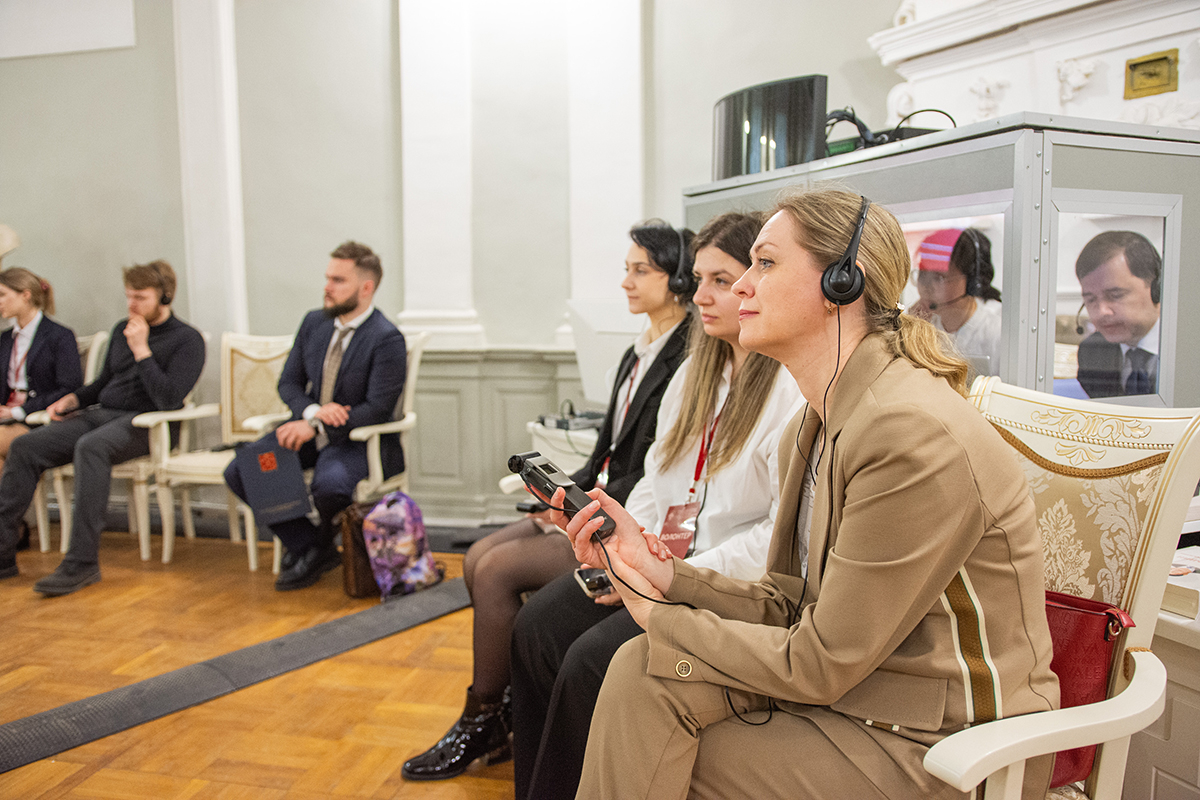‘If you want to go fast, go alone. If you want to go far, go together’: St Petersburg University explores future of China-Russia cooperation
St Petersburg University has hosted the International Scientific Conference ‘Russia, China and Civilisational Dialogue’. The event focused on the historical development of Chinese civilisation, the contemporary foreign policy of the People’s Republic of China, and efforts to enhance mutual understanding between the two nations. A central theme of the conference was the discussion of the 4th volume of the book series ‘The Governance of China’ by Xí Jìnpíng, President of the People’s Republic of China and Honorary Doctor of St Petersburg University. The volume has been recently published in Russian translation.
In his welcoming address, Evgeny Grigoriev, Member of the city Government and Chairman of the Committee for External Relations of St Petersburg, highlighted that St Petersburg, one of the leading centres for cross-cultural cooperation in Russia, prioritises strengthening comprehensive ties with Chinese partners. The address was delivered by Kirill Shishkin, Chief Expert of the Committee for External Relations of St Petersburg, on behalf of Evgeny Grigoriev.
According to Evgeny Grigoriev, St Petersburg University plays a crucial role in implementing this strategy. By leveraging its research and academic capabilities, the University makes significant contributions to investment initiatives and fosters interstate partnerships across various fields, including medicine, ecology, and tourism. St Petersburg University not only collaborates in joint projects and exchange programmes with international partners but also educates highly qualified professionals who contribute to the development of bilateral relations and enhance mutual understanding between nations.
Sergey Andryushin, Vice-Rector for International Affairs, highlighted that St Petersburg University leads Russian universities in the extent of the interaction with the People’s Republic of China. Currently, over 2,500 Chinese citizens are studying at St Petersburg University. Additionally, more than 1,400 Russian-speaking students are learning Chinese as a foreign language and gaining insights into China’s national characteristics, culture, history, and socio-economic conditions.
St Petersburg University was the first Russian university to have signed cooperation agreements with the Ministry of Education of the People’s Republic of China, as well as with Hēilóngjiāng Province, Shāndōng Province, and Sìchuān Province. Supported by the Ministry of Education, the Embassy of the People’s Republic of China in the Russian Federation, and the Consulate General of the People’s Republic of China in St Petersburg, in collaboration with Chinese research institutes, the University has implemented over 90 academic programmes with a Chinese component and promotes active academic exchanges. Teaching and methodological materials for these programmes are developed with significant input from Chinese experts and scholars. Additionally, Chinese partners participate on the councils of academic programmes, and professors from Chinese universities teach Russian students.
Sergey Andryushin stressed that in the current geopolitical landscape, safeguarding national interests, preserving traditional values, and promoting a multipolar world are of utmost importance. He noted that these goals align with the ideas presented in the writings of President of the People’s Republic of China Xí Jìnpíng and underscore the need to bolster Russia’s sovereignty and sustainable development.
‘In his writings, Comrade Xí Jìnpíng emphasises the concept of a shared destiny for humanity, improving the population’s quality of life, strengthening national unity, considering national specifics, and promoting progressive development. Here in Russia, we fully understand and share these goals,’ Sergey Andryushin said. He stressed that such mutual understanding of common national priorities has formed the solid foundation for the successful strategic partnership between St Petersburg University and Chinese organisations.
The Consul General of the People’s Republic of China in St Petersburg, Comrade Luó Zhànhuī, highlighted the significant achievements made under President Xí Jìnpíng’s leadership. Notably, China’s gross domestic product (GDP) has surpassed 18.2% of the global total, and its international trade volume has positioned the country among the leaders in global trade rankings.
According to Comrade Luó Zhànhuī, research focused on the social and economic processes occurring in contemporary China is particularly relevant for comprehensive understanding the reasons behind the nation’s dynamic development. He highlighted the research conducted by scholars at St Petersburg University, which provides deeper insights into the unique features of the current Chinese economy and its impact on the global system.
‘St Petersburg University is more than just an educational institution; it is a university with a rich history that reflects the spiritual connection between Chinese and Russian civilisations. We are united by common goals, a rich culture, and longstanding friendly ties. It is therefore crucial to learn from the past and build a future based on mutual respect and equal partnership,’ underlined Comrade Luó Zhànhuī. He quoted an African proverb: ‘If you want to go fast, go alone. If you want to go far, go together’. Comrade Luó Zhànhuī expressed hope that the conference discussions would not only facilitate a fruitful exchange of views but also define a historic mission to strengthen China-Russia friendship for future generations.
At the conference, the participants examined the Chinese leader’s statements on domestic and foreign policy, global governance, Chinese reform theory, and the future development of China-Russia relations in the new era. As Comrade Luó Zhànhuī noted, studying President Xí Jìnpíng’s writings is crucial for understanding China’s contemporary political philosophy and its strategic vision for the future world order.
The 4th volume of Xí Jìnpíng’s book series ‘The Governance of China’ addresses a wide range of topics, including domestic policy, technology integration, security, foreign relations, and the pursuit of cultural diversity. ‘The book is a voice of truth that conveys wisdom and experience in global governance. The 109 important speeches included in this volume present a new philosophy and strategies for governing the nation. I am confident that by reading the Russian edition, Russian friends will better understand China and strengthen our mutual understanding,’ Comrade Luó Zhànhuī stressed.
The presentation of the Russian translation of the 4th volume of ‘The Governance of China’ book series and the International Scientific Conference ‘Russia, China and Civilisational Dialogue’ were organised by: St Petersburg University; the China International Communication Group of the State Council Information Office of the People’s Republic of China; and the Consulate General of the People’s Republic of China in St Petersburg. The co-organisers were Rénmín Huàbào Publishing House and Shāndōng Radio and Television Network.
Dr Xú Tāo is Deputy Director of the Eurasian Institute of Social Development at the Development Research Centre of the State Council of the People’s Republic of China. In his presentation, he analysed the current state of interstate relations. He highlighted the transition to a new stage of cooperation that strengthens educational, political, and economic ties. Dr Xú Tāo discussed the correlations between education, tradition, and religion, emphasising the importance of studying both national and foreign cultures. He suggested that the differences between Russia and China should be viewed as a factor of stability and a basis for mutual enrichment with value resources. Alexander Lomanov, Deputy Director for Scientific Work at the Primakov National Research Institute of World Economy and International Relations of the Russian Academy of Sciences (IMEMO RAS), discussed the concept of ‘dual circulation’. This strategy aims to bolster the internal economic development of the People’s Republic of China in the context of global challenges.
The second part of the session, titled ‘Bridging Russia’s and China’s approaches to global civilisational development’, focused on discussing the multipolar world order, the restoration of harmony between civilisations, and the importance of equal dialogue among them. The session was moderated by Professor Aleksandr Storozhuk, Head of the Department of Chinese Philology at St Petersburg University and Chairman of the St Petersburg Society of Russian-Chinese Friendship.
‘China and Russia, as key players on the international stage, should work together to safeguard national interests, maintain world order, uphold justice, and strengthen political mutual trust. We should learn from each other and promote cultural well-being. The exchange and mutual enrichment of Chinese and Russian civilisations should serve as a real example of implementing the global civilisation initiative,’ concluded Comrade Huáng Shǒuyè, Deputy Secretary of the Party Committee of the Centre for Europe and Asia at the China International Communication Group of the State Council Information Office of the People’s Republic of China.
At the conference, presentations on various aspects of China-Russia relations were also made by: Professor Nikolay Samoylov, Head of the Department of Theory of Social Development of Asian and African Countries at St Petersburg University; Vladimir Kozlovskiy, Professor in the Department of Sociology of Culture and Communications at St Petersburg University; Mr Zhōu Shèngkuò, Editor-in-Chief of the Shāndōng Radio and Television Network; Margarita Mudrak, Chair of the St Petersburg Association for International Cooperation; and Dr Dīng Xiǎoxīng, Deputy Secretary-General of Academic Committee at the China Institutes of Contemporary International Relations (CICIR).
Summarising the event’s outcomes, Comrade Huáng Shǒuyè emphasised that at this historical crossroads of a century of change, enhancing communication, increasing mutual openness between Russia and China, and fostering cultural interaction at various levels — from the media and think tanks to youth initiatives — are becoming particularly important. The conference participants expressed confidence that, building on more than 70 years of cooperation, the countries will further strengthen their comprehensive strategic partnerships to create a more just and diverse world.



